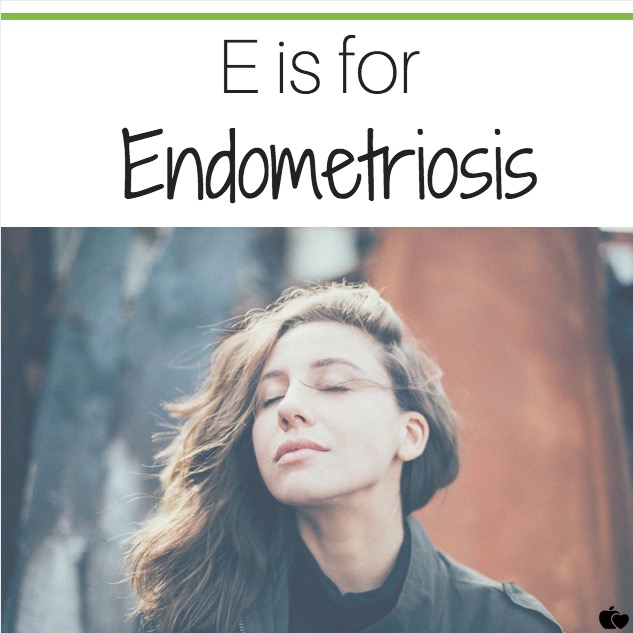E is for Endometriosis
Endometriosis is a condition where body tissue outside of the womb behaves like the womb lining. The tissue thickens and breaks down in the body – and it can be very painful.

Currently, nearly 1.5 million women in the UK are living with endometriosis. While the condition has no cure, symptoms can be managed. This may be through medical treatment, or certain lifestyle changes, such as:
- Following a balanced diet.
- Increasing physical activity.
- Avoiding alcohol, caffeine and stopping smoking.
Symptoms of endometriosis can vary for individuals, but common symptoms include heavy, painful periods, pain during sex, bleeding between periods, and fatigue and lacking energy.
If you are experiencing similar symptoms, and suspect you are suffering from the condition, it is important to visit your doctor to discuss symptoms and how you are feeling. The symptoms of endometriosis are very similar to some other conditions, so, unfortunately, diagnosis can take some time.
Diagnosis is confirmed through a laparoscopy. This is an operation in which a camera is passed through your body to inspect the pelvic organs and look for any signs of endometriosis. Your doctor will discuss this process with you in more detail, as well as explain the treatment options available.
Nutrition and endometriosis
While there is a lack of research into the impact nutrition has on the condition, it’s believed that eating a balanced diet is beneficial and effective in managing symptoms. While some foods are thought to naturally control hormones, certain foods may have a negative effect.
For support and guidance, it is recommended you consult a nutrition professional. After discussing your symptoms and overall lifestyle, they can create a diet plan tailored to you and your symptoms.
Foods that are believed to be important in easing symptoms of endometriosis include:
Healthy fats
All of us require a good balance of omega-3, 6 and 9 as part of a balanced diet. For individuals with endometriosis, however, these healthy fats are believed to help balance hormones and reduce inflammation in the body. These healthy fats can be found in oily fish, such as salmon, sardines and mackerel, and olive oil, walnut oil and flaxseed oil.
Fibre
Fibre is an important part of a balanced diet as it helps regulate bowel movements and help expel unwanted substances. With regards to endometriosis, the unwanted substance includes excess hormones, in particular, oestrogen. It is recommended we should be eating 30g a day as part of a balanced diet, though on average, UK adults are only reaching an average of 18g. Foods high in fibre include whole grains, beans and lentils, vegetables and fruits.
It is important to remember that ‘a balanced diet’ is different for everyone. We are individuals, and your body may require different nutrients to someone else. It is also important to remember that endometriosis can also affect women differently, so please discuss any diet and lifestyle changes with a professional.

Find a nutritionist dealing with Women's nutrition
All nutrition professionals are verified


